Battling the Buzz – Mosquito Bites – Why They Itch, How to Treat Them, and Stay Mosquito-Savvy!

Why Mosquitoes Love you: The Science Behind Mosquito Attraction
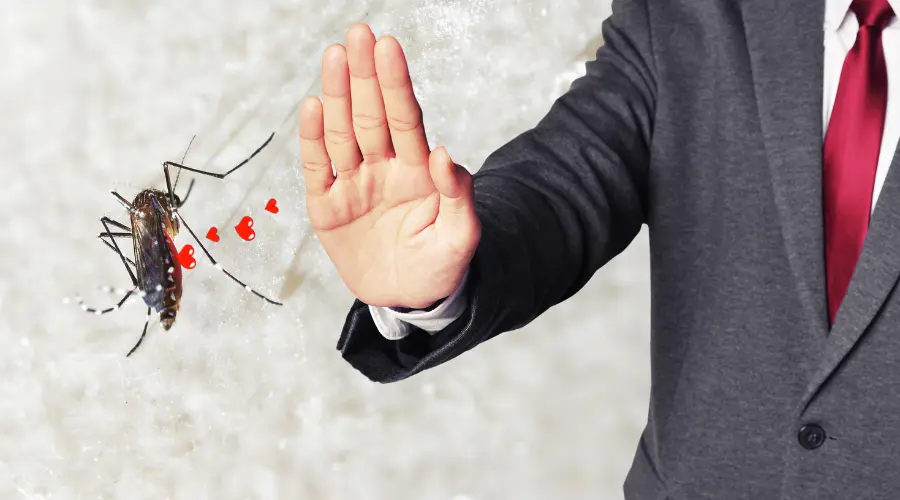
Have you ever felt like mosquitoes have a thing for you? Well, it turns out they might! We will delve into the fascinating science of why mosquitoes are so attracted to certain individuals.
Carbon Dioxide (CO2): Mosquitoes have highly sensitive receptors for carbon dioxide, which we exhale when we breathe. The more you exhale, the more attractive you become to mosquitoes. This is one of the primary factors that draw them to humans. Pregnant women tend to exhale more CO2 and have slightly higher body temperatures, which can make them more attractive to mosquitoes.
Body Heat and Odour: Mosquitoes can detect body heat, and they are naturally attracted to warmer bodies. If you have been active or exercising, your body temperature may rise, making you a more appealing target. Your body odour, including sweat and the natural chemicals produced by your skin, can attract mosquitoes. Some people may have more enticing scents than others.
Blood Type: Some studies suggest that people with certain blood types (Type O) may be more attractive to mosquitoes. However, this is still an area of ongoing research.
Genetics: Genetics can play a role in your attractiveness to mosquitoes. Some individuals may naturally be more appealing to these insects due to their genetic makeup.
Beer Consumption: The consumption of alcohol can increase your body temperature and make you more attractive to mosquitoes.
It’s essential to note that while these factors contribute to your attractiveness to mosquitoes, the degree to which you are targeted can vary from person to person. Taking measures like using mosquito repellent, wearing protective clothing, and avoiding mosquito-prone areas can help reduce your risk of mosquito bites.
Mosquito Bites – What does it feel like? Why you shouldn’t Scratch?
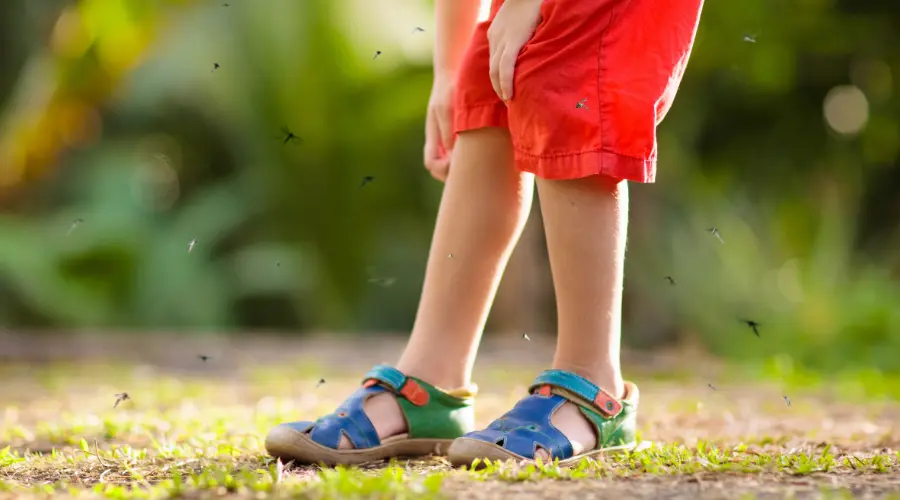
Mosquitoes are not just out for a sip of your blood; they can leave you itching and scratching for days. When a mosquito bites, it injects saliva into your skin, which contains proteins that trigger an immune response. This leads to the redness, swelling, and maddening itch that follows a bite.
What Mosquito Bites Feel Like?
You’ve probably experienced a mosquito bite before. It typically begins as a swollen, red bump shortly after the bite. Over time, it can turn into an itchy, reddish-brown bump or even small blisters. Some folks might notice dark spots resembling bruises. In severe cases, you might experience fever, hives, and swollen lymph nodes.
The Mysterious Itch!
So, why do mosquito bites itch? When a mosquito bites, it injects saliva containing an anticoagulant. Your body sees this as a foreign invader and releases histamines, causing itching and swelling. It can stick around for up to a week, depending on your body’s response.
Why You Shouldn’t Scratch?
We get it, that itch can be unbearable, but scratching only makes it worse. Scratching triggers the release of compounds that increase swelling and itching. Worse, it can lead to infection. Infections may result in sores, blisters, and sometimes even cellulitis, which is a painful skin condition.
Treatment for Mosquito Bites: Soothing the Itch
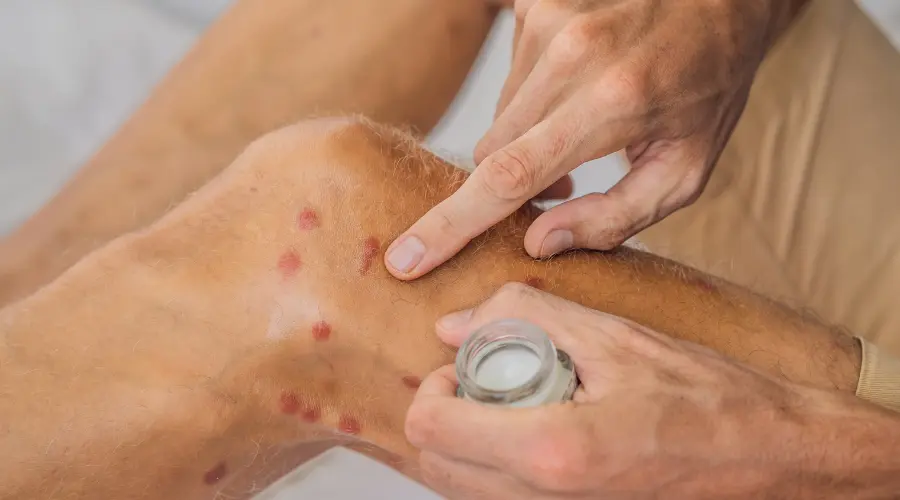
Keep it Clean: The first step in treating a mosquito bite is to wash the affected area with mild soap and water. This helps reduce the risk of infection.
Over-the-counter
- Topical Creams: Over-the-counter hydrocortisone creams or calamine lotion can provide relief from itching and reduce inflammation.
- Oral Antihistamines: Taking an antihistamine like Benadryl can help alleviate itching and reduce allergic reactions.
Home Remedies
- Cold Compress: Applying a cold compress can soothe the bite and help reduce swelling and itching.
- Aloe Vera: The cooling and anti-inflammatory properties of aloe vera gel can soothe mosquito bites. Apply a small amount of fresh aloe vera gel directly to the bite.
- Honey: Honey has natural antibacterial and anti-inflammatory properties. Applying a small amount to the mosquito bite can help reduce itching and promote healing.
- Oatmeal Bath: Soaking in an oatmeal bath can provide relief for multiple mosquito bites or if you have been bitten on a larger area of your body. Place colloidal oatmeal (finely ground oats) in a warm bath and soak for 15-20 minutes.
- Essential Oils: Certain essential oils like lavender, tea tree, or chamomile have anti-inflammatory and soothing properties. Dilute a few drops in a carrier oil (e.g., coconut or olive oil) and apply it to the bite.
- Tea Bags: Place a used, cooled tea bag (black or green tea) on the mosquito bite. The tannins in tea can help reduce itching and inflammation.
- Apple Cider Vinegar: Dabbing a small amount of diluted apple cider vinegar on the bite can help relieve itching.
- Banana Peel: The inside of a banana peel can be rubbed on the mosquito bite to soothe itching.
Remember to perform a patch test when using essential oils or other substances for the first time to ensure you don’t have an adverse reaction. If your mosquito bite becomes infected or doesn’t improve with natural remedies, consult a healthcare professional.
Mosquito-Borne Disease in Australia
In Australia, several mosquito-borne diseases can pose health risks to humans. While the prevalence of these diseases varies across the country, it’s essential to be aware of the potential risks. Some of the mosquito-borne diseases in Australia include,
- Ross River Virus (RRV) Infection: This is the most commonly reported mosquito-borne disease in Australia. It can cause symptoms such as joint pain, rash, fever, and fatigue. The virus is primarily transmitted by Aedes and Culex mosquitoes.
- Barmah Forest Virus (BFV) Infection: Similar to RRV, BFV can cause joint pain, rash, and fever. It is transmitted by Aedes and Culex mosquitoes.
- Murray Valley Encephalitis (MVE): MVE is a rare but serious disease that can lead to encephalitis (inflammation of the brain). It is transmitted by Culex annulirostris mosquitoes and is more common in northern regions of Australia.
- Kunjin Virus: Kunjin virus is related to MVE and can also lead to encephalitis. It is transmitted by the same mosquitoes and is primarily found in northern Australia.
- Dengue Fever: While dengue is not endemic to Australia, there have been occasional outbreaks in northern regions. It is transmitted by Aedes mosquitoes and can cause severe flu-like symptoms.
- Zika Virus: Zika, also not endemic, can be transmitted by Aedes mosquitoes and has been reported in parts of northern Australia. It is of concern due to its association with birth defects in pregnant women.
For more information about mosquito-borne diseases and how to prevent them, please visit NSW Health.
When to Get Help?
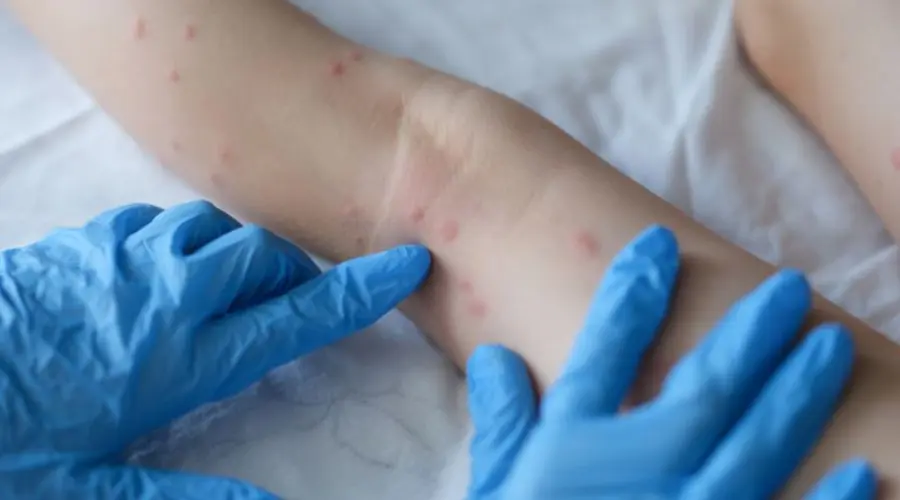
Seek medical help for a mosquito bite if you experience any of the following symptoms:
Severe Allergic Reaction: If you have a severe allergic reaction to a mosquito bite, which can include symptoms like difficulty breathing, swelling of the face, lips, or throat, or hives, seek immediate medical attention. This can be a sign of a severe allergic response called anaphylaxis.
Signs of Infection: If the mosquito bite becomes infected, you may notice increasing redness, warmth, pain, and the development of pus or discharge from the bite site. In such cases, a healthcare professional can provide appropriate treatment, such as antibiotics.
Symptoms of Mosquito-Borne Diseases: In regions where mosquito-borne diseases like dengue, Zika, West Nile virus, or malaria are prevalent, seek medical help if you experience symptoms associated with these diseases. These may include high fever, severe headache, joint and muscle pain, rash, and other unusual symptoms. Early diagnosis and treatment are crucial for managing these diseases.
Persistent or Worsening Symptoms: If the mosquito bite continues to worsen or does not improve with home remedies or over-the-counter treatments, it’s advisable to consult a healthcare provider.
Systemic Reactions: If you experience systemic symptoms after a mosquito bite, such as nausea, vomiting, dizziness, confusion, or rapid heartbeat, seek medical attention promptly. These could be signs of an adverse reaction.
In most cases, mosquito bites are mild and can be managed at home with basic first aid and over-the-counter treatments. However, if you observe any concerning symptoms or have a history of severe reactions to mosquito bites, it’s best to consult a healthcare professional for proper evaluation and treatment.
Preventing Mosquito Bites
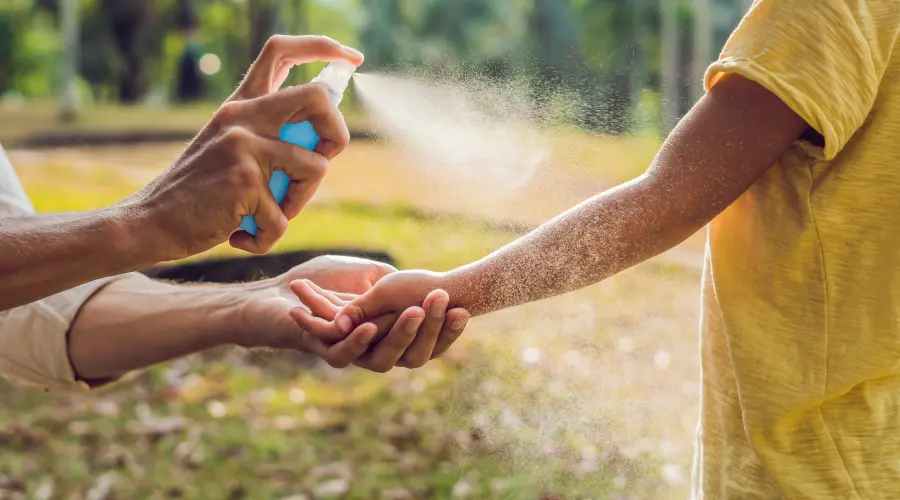
Wear Protective Clothing: When in mosquito-prone areas, wear long-sleeved shirts, long pants, socks, and closed-toe shoes. This minimizes exposed skin.
Avoid Peak Mosquito Activity: Mosquitoes are most active during dawn and dusk. If possible, limit outdoor activities during these times.
Secure Your Home: Install window and door screens to keep mosquitoes out of your living spaces. Repair any holes or tears in existing screens.
Eliminate Standing Water: Mosquitoes breed in standing water. Regularly empty, cover, or treat containers that can collect water, such as buckets, flower pots, or bird baths.
Avoid Strong Scents: Mosquitoes are attracted to strong scents, including perfumes and scented lotions. Consider using unscented products when in mosquito-prone areas.
Natural Repellents: Some natural repellents like citronella candles and essential oils (e.g., lavender or lemon eucalyptus) for mosquito bites can help alleviate itching, reduce inflammation, and promote faster healing.
Stay Informed: Be aware of local disease outbreaks. When there is an increased risk of mosquito-borne diseases, consider extra precautions, such as staying indoors during peak mosquito activity.
By following these preventive measures, you can significantly reduce the likelihood of mosquito bites and the associated health risks. Tailoring your prevention strategies to the specific environment and risks in your location is essential.
Stay in the Know: Latest Updates on Mosquitoes Diseases
In addition to preventing mosquito bites, it’s crucial to be aware of the latest updates on mosquito-borne diseases. Knowing the latest developments can help you take necessary precautions and protect yourself from potentially dangerous infections.
Latest News on Mosquitoes
Mosquito survey set to begin in NSW as summer looms – 12 Oct 2023
ABC Central West – By Joanna Woodburn
Cameron Webb, an associate professor at the University of Sydney works with NSW Health for statewide monitoring research. His method for catching mosquitoes is humble but effective and involves an assortment of bits and bobs.
The Mosquito Factory Fighting Disease – 11 Oct 2023
The BMJ-Mun-Keat Looi
WMP, a non-profit research institute, has been working for the past two decades to eradicate certain parasite and virus diseases by targeting the insects that carry them. It’s not a new idea, and for some the idea of genetically modifying mosquitoes to prevent them from breeding is a touchy subject, so the WMP approach is more palatable.
Mosquito swarm takes over plane, forcing cabin crew to cloud jet with spray– 11 Oct 2023
NY Post – Ben Cost
A Mexican flight was delayed for several hours after the cabin was beset by a biblical swarm of mosquitoes. Local media reports that the area where the airport is located presents an ideal environment for the proliferation of mosquitoes because it is located near areas with flooding and abundant vegetation.
Northern Ireland struck by surging mosquito plague – increasing numbers are here to stay with increased risks – 11 Oct 2023
Newsletter- Philip Bradfield
Northern Ireland has suffered an unusual surge in mosquito numbers recently – and we are likely to see greater numbers in future with increasing risk from Malaria, West Nile Virus, Usutu Virus, Dengue and Chikungunya Virus of them spreading tropical viruses, an expert has warned.
Now that you’re well-versed in mosquito bites, their causes, and how to prevent them, you can enjoy the great outdoors without being an easy target for these pesky insects. Happy mosquito-free adventures!





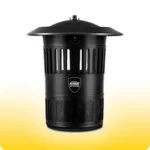 Mosquito Traps
Mosquito Traps